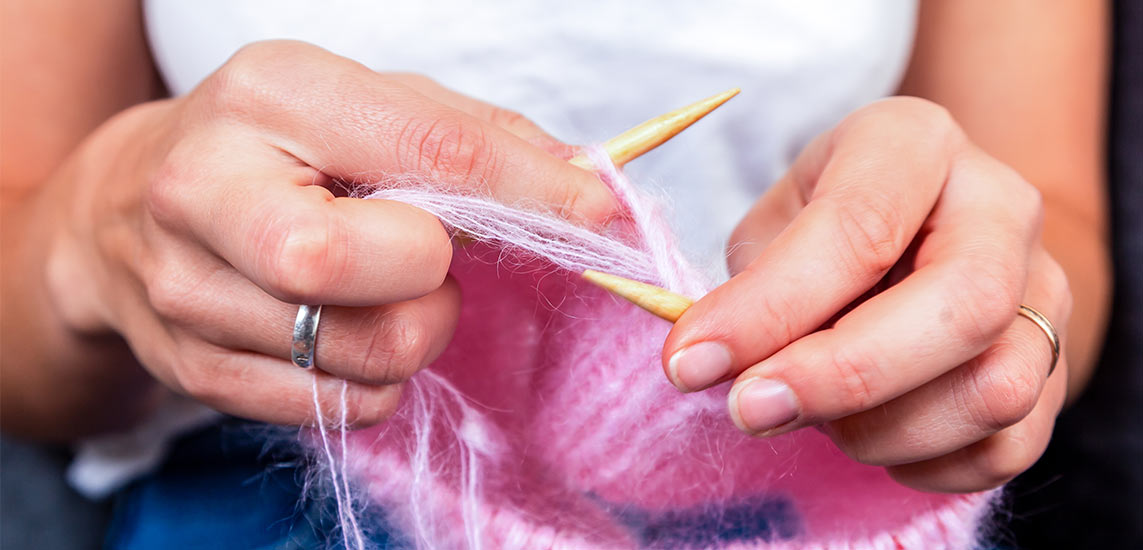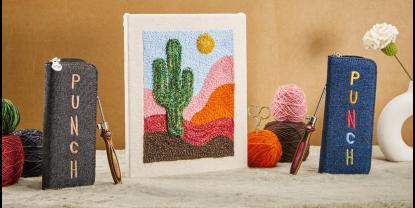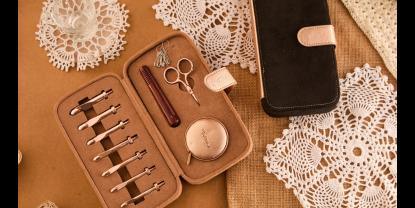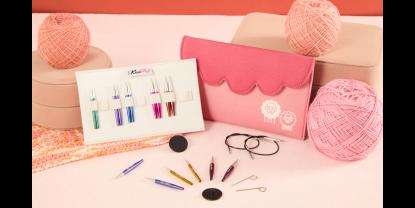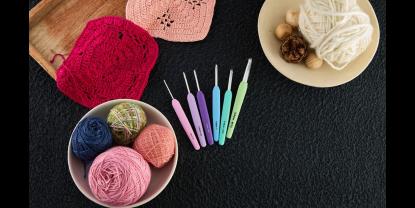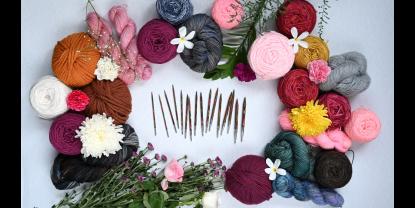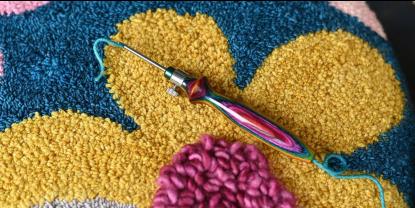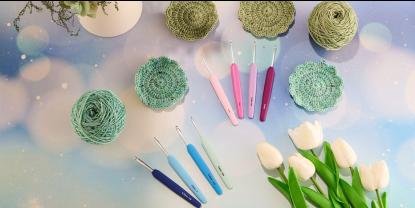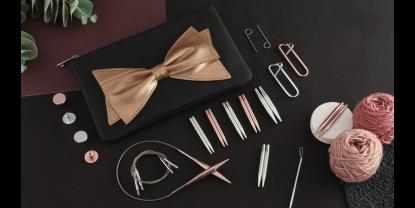When you knit or crochet, you're crafting and embracing a more sustainable way of life. In a world where environmentally friendly, green behavior is increasingly crucial, knitting and crocheting are experiencing a remarkable resurgence, capturing the hearts of crafting enthusiasts who want to contribute to a more sustainable world.
Harness the potential of your knitting needles and crochet hooks to craft projects that champion environmental consciousness and sustainability in your life.
This blog provides tips and ideas for long-lasting, eco-friendly knitting projects and gifts, allowing you to embrace a 'Zero Waste' mentality and integrate sustainability into your everyday life. So, grab your needles or hooks along with some essential accessories and some yarn, and let yourself be inspired.
Knitting and Crocheting for Sustainability
Environmental consciousness starts even before making the first stitch. Before diving into your project, take a look at the yarn label. Opt for eco-friendly and sustainable materials like organic cotton, recycled yarn, or naturally dyed fibers, which help reduce the negative environmental impact while supporting the demand for environmentally-friendly products.
Choose your knitting and crocheting tools consciously too. For instance, the needles from KnitPro's Mindful Collection are made from stainless steel, built to last a lifetime. The material has positive attributes that is passed on to the makers.
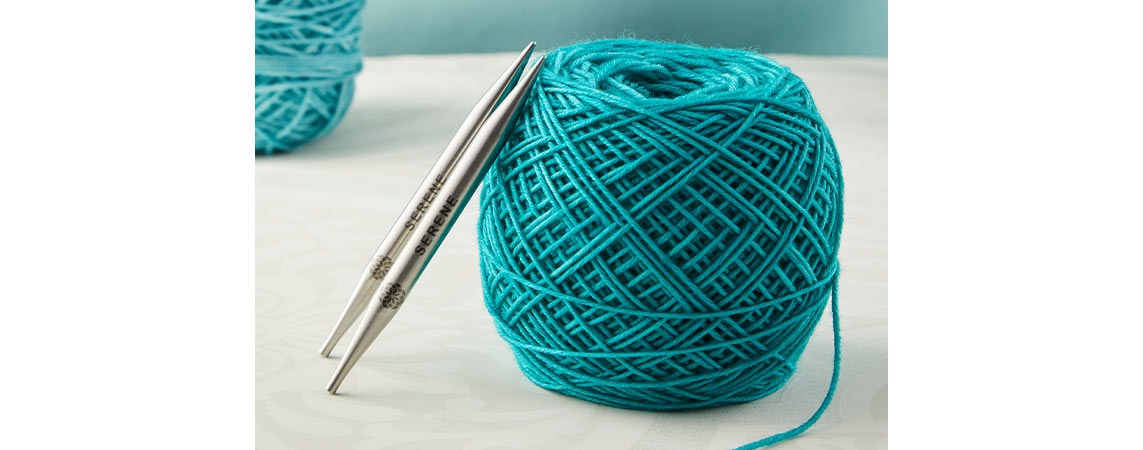
If you're an avid knitter or crocheter, consider investing in a set of interchangeable knitting needles or a crochet set that covers all essential hook sizes. Not only are needle sets significantly more budget-friendly than purchasing individual sizes, but they also slash your CO2 footprint by reducing packaging waste and shipping costs by up to 20%.
Opting to create your wardrobe and accessories through knitting or crocheting diminishes your reliance on mass production and fast fashion, conserving resources and averting material waste. Handcrafted pieces are more durable and can be worn for a long time with proper care. Using your knitting and crocheting needles cultivates an appreciation for enduring objects rather than being discarded after a brief period of use.
Knitting and crocheting allow you to tailor projects to your preferences. This helps you develop and refine your unique style, leading to fewer clothing purchases.
Handmade items and accessories require less packaging than commercially produced products, often encased in plastic or non-biodegradable materials. Upcycle old knit sweaters by unraveling them, whether they're your own or thrift store finds. You can reuse the yarn in new knitting and crochet projects, actively minimizing waste.
Learning knitting and crocheting techniques nurtures skills and knowledge that can be passed down to future generations. Crafting by hand requires time, patience, and concentration; it is your ticket to slow down your lifestyle and cultivate mindfulness in your everyday routine while working with your knitting and crocheting tools.
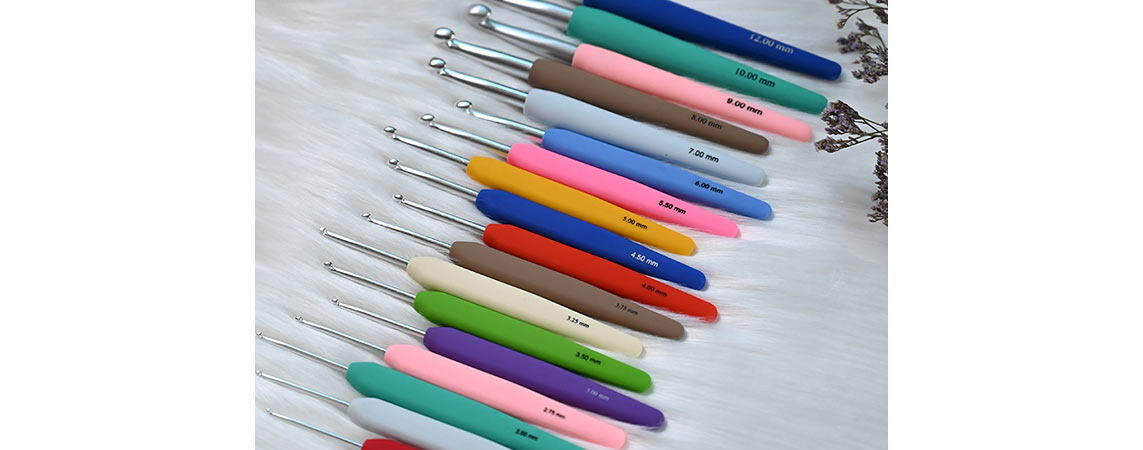
These Knitting and Crocheting Projects Embrace Eco-Friendly Living
With your knitting and crocheting needles, you can actively contribute to reducing waste and conserving resources.
Zero-waste dishcloths and sponges, washcloths, and reusable makeup pads embody an environmentally conscious mindset. Knitted or crocheted, they offer sustainable alternatives to disposable products, often made from plastic. Handcrafted cloths, makeup pads, and sponges are also an excellent opportunity to try out new patterns and make perfect little gifts for your loved ones. Here's a free example of a bath sponge by Catie Moore .Use machine-washable yarns like cotton, linen, or bamboo that can withstand high temperatures.
Knitted and crocheted shopping nets, baskets for your storage, bread and lunch bags express your style and make great sustainable gift ideas. Use especially durable and sturdy materials, such as thick cotton yarn or jute, for sturdy hanging baskets and market nets. Here's a quick and downloadable project by Charlie van de Graaf. In contrast, to single-use plastic bags, your self-crocheted or knitted bags and baskets reduce the need for plastic packaging, which poses a significant problem for our environment and pollutes the oceans. The durability of the hand-crocheted or knitted materials ensures that the bags and baskets last a long time, even with regular use.
You can crochet seat covers for old furniture, such as stools and benches, car seats, or even an old lampshade. With beautiful, intricately crocheted covers that cleverly incorporate square or round granny square patterns, you're hitting two birds with one stone using your crochet hook. The vintage furniture is restored to its former glory or even transformed into a new statement piece. Here's a charming pattern for a round granny cover by Eleonora Tully to get you started.
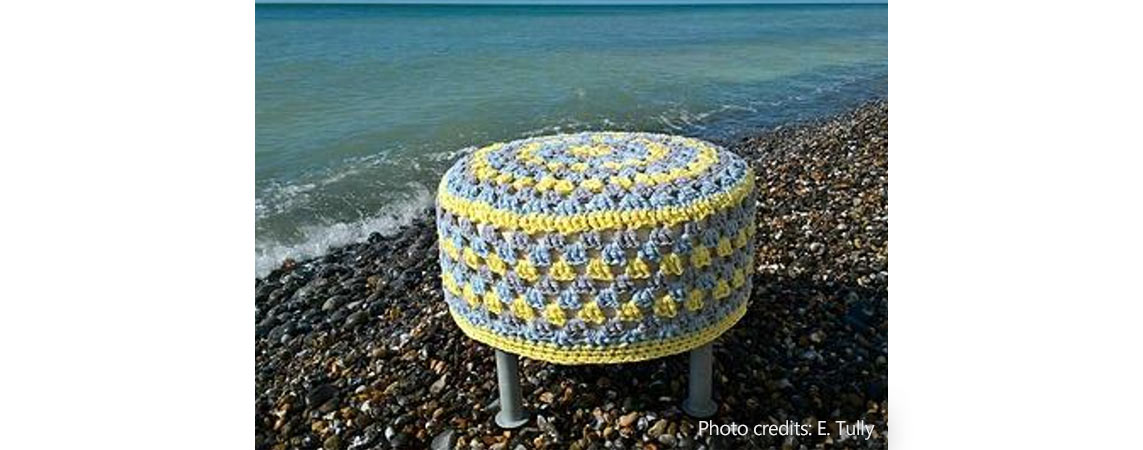
Upcycling of old garments. Before you discard old coats, jackets, or sweaters, consider whether you can enhance them with a hand-knitted or crocheted detail. This could be a crocheted collar for a coat, knitted sleeves for a denim vest, or punch-needle-embroidered floral patterns on an old wool sweater. Your creativity will allow you to see the discarded garment in a new light and give you immense joy. Let your imagination and your knitting needles run wild!
We hope you've discovered some inspiring and sustainable knitting and crocheting ideas to make your everyday life more environmentally friendly. With the high-quality knitting and crocheting tools from KnitPro, you can get creative anywhere – on your way to work, at the university, in a café, or while waiting for the next subway train. Your sustainable attitude will lead you to create unique pieces that reflect your personality and tie a special bond to your project. Your handmade projects eventually evolve into vibrant stories cherished by you and your loved ones.


